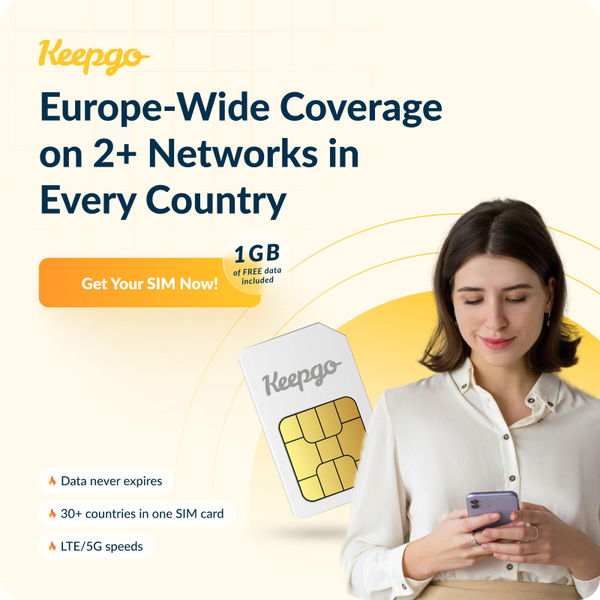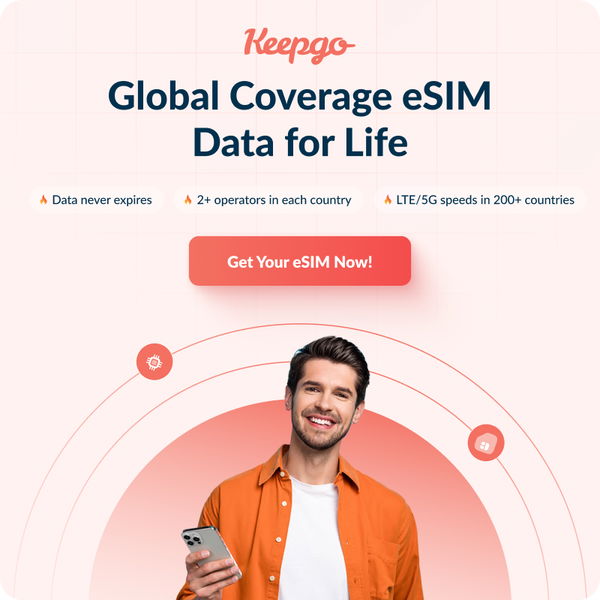
Can You Trust a Lifetime eSIM Plan? Spoiler: Probably Not
Picture this: You’re planning a big trip—or maybe just want to have a backup connection for emergencies—and you stumble upon something that sounds too good to be true. A “lifetime eSIM plan.” One payment. No expiration. Global coverage. Use it whenever you want. No top-ups, no monthly fees. Just permanent connectivity in your pocket, forever.
Sounds like the dream, right?
In a world where we’re used to subscriptions, roaming charges, and unreliable airport Wi-Fi, the promise of a one-and-done, unlimited-validity eSIM feels like magic. And eSIM technology is pretty magical—it lets you connect to mobile networks without swapping physical SIM cards, all through a simple QR code or app. So naturally, when someone says “Buy this 10GB eSIM once and keep it for life,” your brain goes, “Wait—really?!”
But here’s the thing: most lifetime eSIM plans are more hype than reality. And if you dig just a little below the marketing surface, things get murky—fast.
Who’s actually offering these plans? What do they really mean by “lifetime”? What happens if the provider vanishes, changes terms, or the networks themselves evolve? And is there even such a thing as “forever data” in a world where tech and telecom move at lightning speed?
In this article, we’re pulling back the curtain on the growing wave of so-called “permanent” or “lifetime” eSIM plans. We’ll look at how they work, who’s behind them, and whether they’re a smart buy or a clever trap. No fear-mongering, no fluff—just the honest truth about what you’re really getting when you buy a lifetime eSIM.
Let’s get into it.
1. What the heck is a “lifetime” eSIM plan?
Lifetime eSIMs are prepaid data plans marketed as having “no expiration”—you pay once, and your data remains valid indefinitely. Providers like Keepgo, BNESIM, aloSIM, Simfinity, and Instabridge have jumped on the trend.
- Keepgo promises your bought data “is valid forever” with no recurring fees .
- BNESIM offers 5–20 GB “no expiry” plans across regions.
- aloSIM bundles a “lifetime eSIM” with credit that expires in 30 days.
- Instabridge sells a “Lifetime Plan” claimed to operate in 190+ countries.
On paper, it’s genius: load data, store the eSIM profile in your phone, and pull it out years later whenever needed. No monthly fees. One purchase for connected peace of mind.
2. How do they actually work? (And what gets you)
Tech basics: An eSIM is just a virtual SIM profile stored in your phone. Once installed, it’s infinitely resident. But the key is not the profile—it’s the data you buy.
Here’s how it really rolls:
- You buy an eSIM with a data bundle—say 10 GB.
- The provider stamps “lifetime” on it—meaning they’ll let it sit in your profile for years.
- You have to use (or renew) it eventually—usually before it expires or the provider shuts shop.
- Beware small print: “lifetime” refers to the company’s life, not yours. It might go away tomorrow, leaving your data stranded.
3. Who’s behind them—and are they legit?
Established vs. edgy providers
- Keepgo (founded 2011, eSIM since 2020) is a reputable wireless provider with patents
- BNESIM, Simfinity, Instabridge, aloSIM, and newer players are smaller and less transparent. They pop up in travel blogs and deals but often vanish off the radar.
What shady means in eSIM terms:
- They may stop selling, change rules, limit networks, hike prices—while still leaving your eSIM dormant.
- Some providers add conditions: you must top-up annually or lose access (e.g. some BNESIM Europe plans insist on annual refill)
- Worst-case, companies fold—suddenly your eSIM points to nowhere.
4. Are they scams?
Probably not outright scams, but they contain traps:
“Lifetime” doesn’t equal “forever”
- Marketing often blurs the lines: “data never expires,” but that’s bad wording—they mean “your data doesn’t expire before you use it.” There’s no guarantee if the company ceases operations.
- aloSIM, for instance, clarifies that your eSIM stays, but the data itself expires after 30 days —so it’s not really “lifetime data.”
Voices from the trenches
On Reddit, users vent frustration over half-forgotten eSIM setups:
“Is there an eSIM card that never expires for receiving SMS?”
“Esimplus gives you an Estonia number. Don’t think it ever expires… The ‘global’ data option never expires.”
“It actually works!! Thank you so very much”
But:
“This no longer works…”
So reliability swings wildly.
5. Are these short-lived stunts—or are they here to stay?
Risks to consider:
- Provider lifespan: Many of these startups exist on razor-thin margins. If their business sinks, so does your plan.
- Terms changing: Annual recharges, restricted top-ups, coverage cuts—all can trigger after purchase.
- Tech shifts: Operators may decommission old roaming agreements or drop regional networks, breaking service.
- Device swaps: Switching phones may require re-downloading the eSIM. If the company closes, you’re stuck.
6. So… should you trust them?
TL;DR: “Probably not” — but hear me out.
✓ Good for bulletproof backup:
-
If you just need a fallback data line sitting dormant, and you can spare $10–40, great. Keep a couple GB handy.
✗ Not ideal for core connectivity:
-
Don’t rely on them as your main line abroad—especially for critical travel.
What to do:
- Choose reputable companies with real support—like Keepgo, BNESIM, Airalo, GigSky—even if that means paying yearly.
- Read the fine print: Do you have to refill within a year? What coverage is promised?
- Consider seasonal/top-up plans for longer stays—more predictable and backed by big providers.
- Keep a backup: Physical SIM card or a second eSIM from someone like Airalo or Airhub.
Final takeaway
“Lifetime” eSIMs are a gamble. The profiles themselves may last in your phone for years (heck, eSIM tech supports that), but the company supporting it might vanish, change terms, or degrade services.
✅ If you want a cheap, dormant backup, fine—just don’t be surprised if it fizzles.
🚫 If you need solid, reliable mobile data abroad, go for known names with clear terms, timely support, and yearly refresh options.
So trust? Maybe to an extent—but treat “lifetime” as marketing fluff rather than an iron-clad guarantee. Keep it real, and always have a Plan B.











